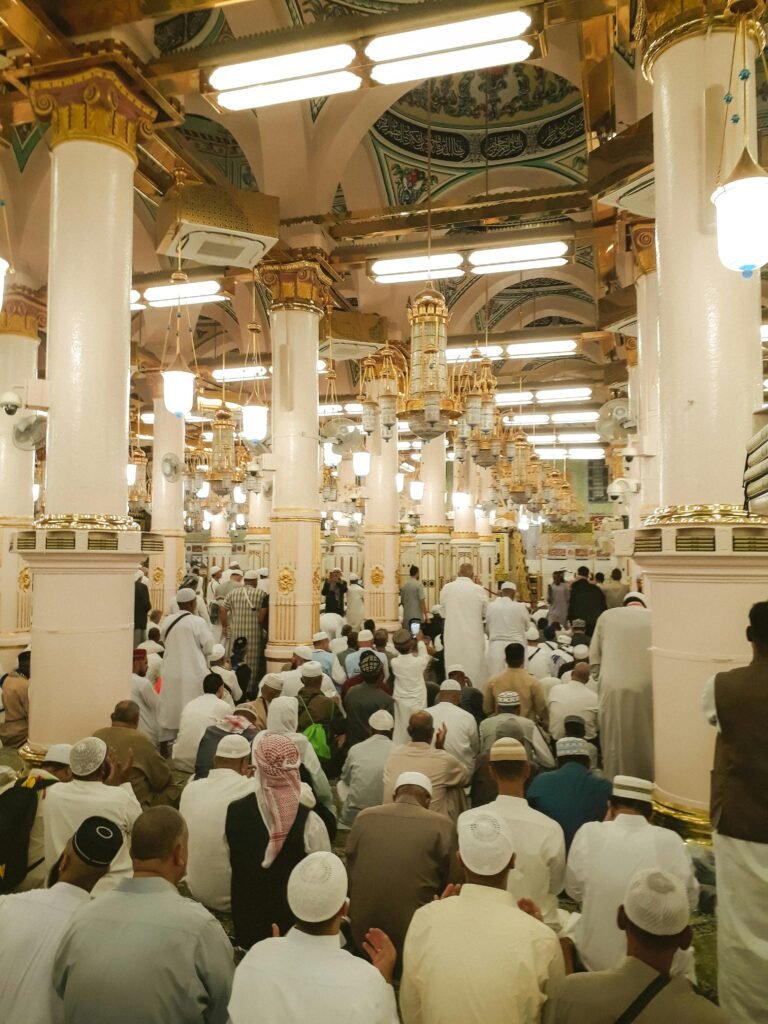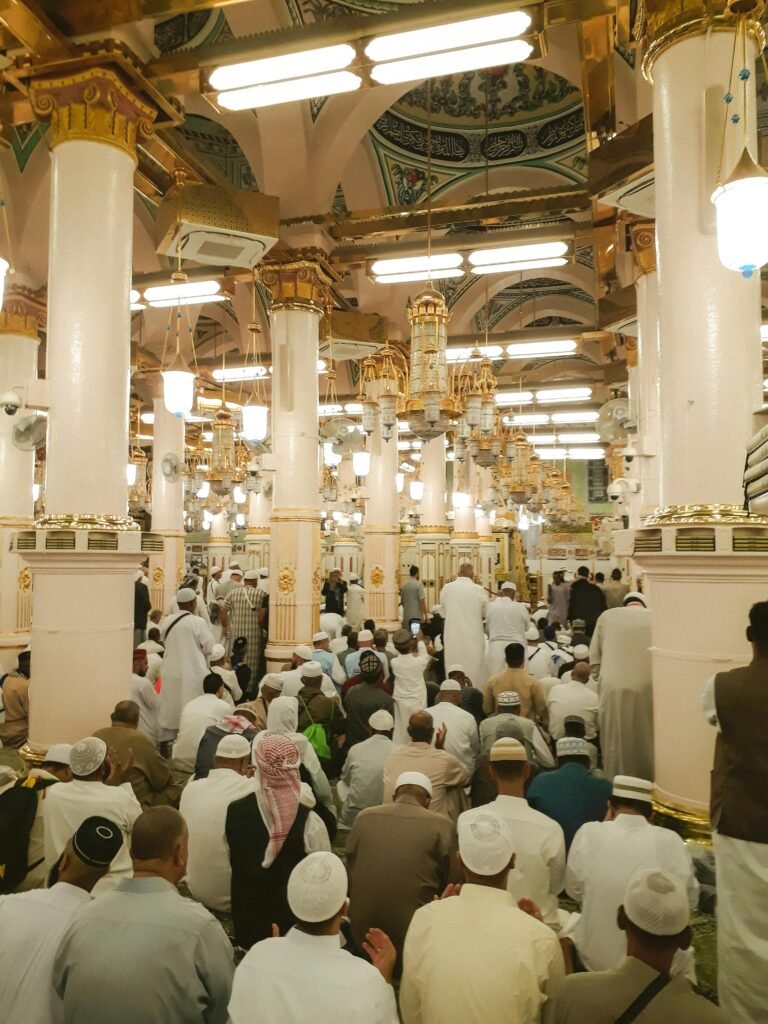New 10 Things You Didn’t Know About Islamic Civilization

Welcome to the profound world of Islamic News, where history, spirituality, and culture intertwine to unveil the majestic saga of Islamic civilization. The rich tapestry of this civilization has fascinated scholars, travelers, and believers for centuries. Yet, beyond the commonly known facts, there exist hidden gems—enigmatic stories and monumental achievements that have shaped human progress.
This extensive article will shed light on 10 remarkable truths about Islamic civilization that many might not know. It integrates essential terms such as Islam, what the Islamic religion entails, Islamic History, Islamic Hijri, Islamic New Year, What Is Eid, what is Roza and salah, and fundamental Islamic Information. Most importantly, it is crafted to resonate with the vibrant pulse of Islamic News and engage readers with a powerful, emotional narrative.
Islam and Islamic Civilization
Before unveiling the lesser-known marvels, it’s vital to understand the foundations of Islam and its civilization.
Islam is a monotheistic religion articulated by the Quran, revealed to the Prophet Muhammad (peace be upon him) over 1,400 years ago. It is not only a spiritual path but a comprehensive way of life that integrates faith with social, political, and cultural dimensions.
The phrase “What Islamic religion represents” goes beyond ritualistic acts; it embodies a worldview that has fostered some of the most advanced societies in history. The annals of Islamic History chart a journey of intellectual brilliance, scientific breakthroughs, and cultural flourishing.
1. The Origins of the Islamic Hijri Calendar
One of the most compelling yet lesser-discussed facets of Islamic civilization is the Islamic Hijri calendar. Unlike the Gregorian calendar, the Islamic calendar is lunar, beginning its count from the Hijra—the sacred migration of Prophet Muhammad from Mecca to Medina in 622 CE.
This migration was more than a physical journey; it symbolized freedom from oppression and the dawn of a new social order. The Islamic New Year marks this epochal event, observed quietly yet profoundly by millions worldwide. This lunar calendar has governed religious observances, from fasting schedules to the timing of Eid festivities.
2. The True Essence of “What Is Eid”
While many know what Eid is, its deeper spiritual and communal significance is often understated in Islamic News. Eid is not merely a festive occasion; it is a moment that epitomizes unity, gratitude, and mercy.
- Eid al-Fitr celebrates the conclusion of Roza (fasting) during Ramadan, a month dedicated to the purification of the soul and empathy.
- Eid al-Adha commemorates the ultimate sacrifice of Prophet Ibrahim (Abraham), symbolizing submission to God’s will.
The emotions that flood these days—joy, relief, generosity—are testimonials to the transcendent power of faith that has sustained Islamic civilization through tumultuous times.
3. Unraveling the Significance of Roza and Salah
Understanding what Roza and Salah are is essential to grasping the spiritual core of Islam.
- Roza (fasting) during Ramadan is more than abstaining from food and drink. It cultivates empathy for the less fortunate, self-restraint, and spiritual awakening.
- Salah (ritual prayer), performed five times daily, is the believer’s direct dialogue with Allah. It punctuates the day with moments of reflection, surrender, and rejuvenation.
These practices are woven into the daily fabric of Islamic civilization, nurturing resilience and piety.
4. The Astounding Scientific Achievements of the Islamic Golden Age
The Islamic Golden Age (8th to 14th centuries) was an era of unprecedented intellectual fervor, largely unrecognized in mainstream narratives featured in Islamic News.
Muslim scholars pioneered algebra (from the Arabic “al-jabr”), introduced the concept of algorithms, and refined astronomical instruments that mapped the heavens with astonishing precision. Medical encyclopedias by Ibn Sina (Avicenna) and Al-Razi laid the groundwork for modern medicine.
This renaissance of knowledge radiated from institutions like the House of Wisdom in Baghdad, an epicenter where scholars of diverse cultures converged.
5. The Hidden Contributions to Art and Architecture
Islamic civilization is synonymous with breathtaking artistry and architectural marvels that transcend time. Yet, many remain unaware of the profound symbolism encoded in their intricate geometric patterns and calligraphy.
Mosques are not only places of worship but sanctuaries of art, designed to reflect divine harmony. The interplay of light and shadow, the repetition of patterns, and the elegant scripts of Quranic verses are testimonies to a civilization that revered beauty as a reflection of God’s perfection.
6. The Complex Political Tapestry: The Khilafah and Beyond
The term Khilafah—the Islamic caliphate—is often oversimplified in Islamic News. Historically, the Khilafah was not a monolithic entity but a dynamic, evolving institution that managed the vast and culturally diverse Muslim world.
From the righteous leadership of the Rashidun Caliphs to the grandeur of the Ottoman Empire, the Islamic civilization navigated complex political landscapes, balancing spiritual authority with pragmatic governance.
The legacy of justice, consultation (shura), and community welfare underpinned these systems.
7. The Flourishing of Philosophy and Theology

The intellectual ferment of Islamic civilization gave birth to profound philosophical and theological discourses. Thinkers such as Al-Farabi and Ibn Rushd (Averroes) engaged deeply with Greek philosophy, harmonizing reason and revelation.
Islamic theology, known as Kalam, wrestled with questions about free will, divine justice, and human purpose, crafting intricate doctrines that resonate even today.
8. The Role of Women in Early Islamic Societies
Contrary to many misconceptions in Islamic News, early Islamic civilization granted women considerable rights and respect unprecedented in many contemporary societies.
Women like Khadijah, the Prophet’s wife, were powerful economic agents and spiritual pillars. Education and social participation for women were encouraged, reflecting the egalitarian spirit rooted in Islam.
9. The Enduring Influence of Islamic Trade Networks
The commercial prowess of Islamic civilization shaped global trade routes connecting Asia, Africa, and Europe. Muslim merchants not only exchanged goods but also ideas, technologies, and cultures.
The Silk Road and Indian Ocean trade flourished under Islamic stewardship, facilitating economic prosperity and cross-cultural fertilization that enriched civilizations worldwide.
10. Contemporary Islamic Affairs: Bridging Tradition and Modernity
Today, Islamic News portrays a dynamic, multifaceted world where tradition meets innovation. Muslim-majority countries are forging new paths in science, education, and governance, while grappling with the challenges of globalization.
Institutions like Al-Azhar University continue to be beacons of Islamic Information and scholarship, nurturing new generations that honor their heritage while engaging the modern world.
Conclusion: Embracing the Depth and Diversity of Islamic Civilization
The story of Islamic civilization is a narrative of resilience, wisdom, and transcendent faith. From the origin of the Islamic Hijri calendar to the ethereal beauty of Islamic art, from the spiritual depth of Roza and salah to the intellectual brilliance of its scholars, this civilization continues to inspire and instruct.
As Islamic News unfolds daily, revealing new dimensions and dialogues, it is essential to appreciate the profound legacy and vibrant present of Islam—a faith and civilization that have irrevocably shaped the world.
